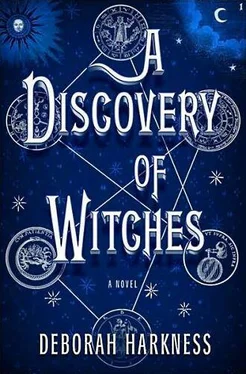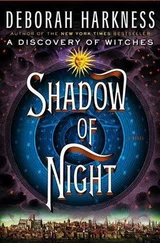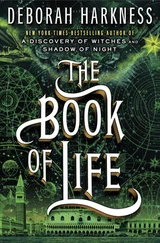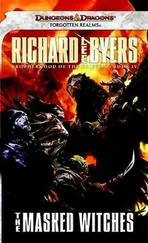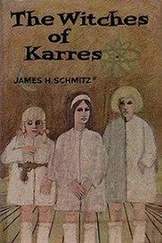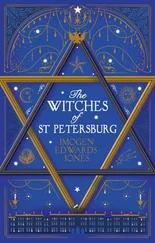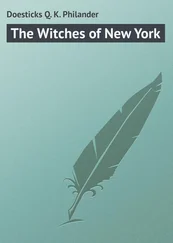“Thank you,” I called over my shoulder, holding it up.
“I found it downstairs. Apparently the one I have isn’t good enough for you.” He grinned.
“I absolutely refuse to treat a Gutenberg Bible as a reference book, Matthew.” My voice came out more sternly than anticipated, making me sound like a schoolmarm.
“I know the Bible backwards and forwards. If you have a question, you could just ask me,” he suggested.
“I’m not using you as a reference book either.”
“Suit yourself,” he said with a shrug and another smile.
With my computer at my side and an alchemical manuscript before me, I was soon absorbed in reading, analyzing, and recording my ideas. There was one distracting incident when I asked Matthew for something to weight down the book’s pages while I typed. He rummaged around and found a bronze medal with the likeness of Louis XIV on it and a small wooden foot that he claimed came from a German angel. He wouldn’t surrender the two objects without sureties for their return. Finally he was satisfied by several more kisses.
Aurora Consurgens was one of the most beautiful texts in the alchemical tradition, a meditation on the female figure of Wisdom as well as an exploration of the chemical reconciliation of opposing natural forces. The text in Matthew’s copy was nearly identical to the copies I’d consulted in Zurich, Glasgow, and London. But the illustrations were quite different.
The artist, Bourgot Le Noir, had been a true master of her craft. Each illumination was precise and beautifully executed. But her talent did not lie simply in technical mastery. Her depictions of the female characters showed a different sensibility. Bourgot’s Wisdom was full of strength, but there was a softness to her as well. In the first illumination, where Wisdom shielded the personification of the seven metals in her cloak, she bore an expression of fierce, maternal pride.
There were two illuminations—just as Matthew had promised—that weren’t included in any known copy of Aurora Consurgens. Both appeared in the final parable, devoted to the chemical wedding of gold and silver. The first accompanied words spoken by the female principle in alchemical change. Often represented as a queen dressed in white with emblems of the moon to show her association with silver, she had been transformed by Bourgot into a beautiful, terrifying creature with silvery snakes instead of hair, her face shadowed like a moon eclipsed by the sun. Silently I read the accompanying text, translating the Latin into English: “Turn to me with all your heart. Do not refuse me because I am dark and shadowed. The fire of the sun has altered me. The seas have encompassed me. The earth has been corrupted because of my work. Night fell over the earth when I sank into the miry deep, and my substance was hidden.”
The Moon Queen held a star in one outstretched palm. “From the depths of the water I cried out to you, and from the depths of the earth I will call to those who pass by me,” I continued. “Watch for me. See me. And if you find another who is like me, I will give him the morning star.” My lips formed the words, and Bourgot’s illumination bought the text to life in the Moon Queen’s expression that showed both her fear of rejection and her shy pride.
The second unique illumination came on the next page and accompanied the words spoken by the male principle, the golden Sun King. The hair on my neck rose at Bourgot’s depiction of a heavy stone sarcophagus, its lid open just enough to reveal a golden body lying within. The king’s eyes were closed peacefully, and there was a look of hope on his face as if he were dreaming of his release. “I will rise now and go about the city. In its streets I will seek out a pure woman to marry,” I read, “her face beautiful, her body more beautiful, her raiment most beautiful. She will roll away the stone from the entrance of my tomb and give me the wings of a dove so that I might fly with her to the heavens to live forever and be at rest.” The passage reminded me of Matthew’s badge from Bethany and Lazarus’s tiny silver coffin. I reached for the Bible.
“Mark 16, Psalms 55, and Deuteronomy 32, verse 40.” Matthew’s voice cut through the quiet, spouting references like an automated biblical concordance.
“How did you know what I was reading?” I twisted in my chair to get a better view of him.
“Your lips were moving,” he replied, staring fixedly at his computer screen, his fingers clattering on the keys.
Pressing my lips together I returned to the text. The author had drawn on every biblical passage that fit the alchemical story of death and creation, paraphrasing and cobbling them together. I pulled the Bible across the desk. It was bound in black leather and a gold cross adorned the cover.
Opening it to the Gospel of Mark, I scanned the chapter 16. There it was, Mark 16:3, “And they said one to another: Who shall roll us back the stone from the door of the sepulchre?”
“Find it?” Matthew inquired mildly.
“Yes.”
“Good.”
The room grew silent once more.
“Where’s the verse about the morning star?” Sometimes my pagan background was a serious professional liability.
“Revelation 2, verse 28.”
“Thank you.”
“My pleasure.” A smothered laugh came from the other desk. I bent my head to the manuscript and ignored it.
After two hours of reading tiny, Gothic handwriting and searching for corresponding biblical references, I was more than ready to go riding when Matthew suggested it was time for a break. As an added bonus, he promised to tell me over lunch how he knew the seventeenth-century physiologist William Harvey.
“It’s not a very interesting story,” Matthew had protested.
“Maybe not to you. But to a historian of science? It’s the closest thing I’ll get to meeting the man who figured out that the heart is a pump.”
We hadn’t seen the sun since we’d arrived at Sept-Tours, but neither of us minded. Matthew seemed more relaxed, and I was surprisingly happy to be out of Oxford. Gillian’s threats, the picture of my parents, even Peter Knox—they all receded with each hour that passed.
As we walked out into the gardens, Matthew chatted animatedly about a problem at work that involved a missing strand of something that should have been present in a blood sample but wasn’t. He sketched out a chromosome in the air in an effort to explain, pointing to the offending area, and I nodded even though what was at stake remained mysterious. The words continued to roll out of his mouth, and he put an arm around my shoulder, drawing me close.
We rounded a line of hedges. A man in black stood outside the gate we’d passed through yesterday on our ride. The way he leaned against a chestnut tree, with the elegance of a leopard on the prowl, suggested he was a vampire.
Matthew scooped me behind him.
The man pulled himself gracefully away from the tree’s rough trunk and strolled toward us. The fact that he was a vampire was now confirmed by his unnaturally white skin and huge, dark eyes, emphasized by his black leather jacket, jeans, and boots. This vampire didn’t care who knew he was different. His wolfish expression was the only imperfection in an otherwise angelic face, with symmetrical features and dark hair worn curling low onto his collar. He was smaller and slighter than Matthew, but the power he exuded was undeniable. His eyes sent coldness deep under my skin, where it spread like a stain.
“Domenico,” Matthew said calmly, though his voice was louder than usual.
“Matthew.” The glance the vampire turned on Matthew was full of hate.
“It’s been years.” Matthew’s casual tone suggested that the vampire’s sudden appearance was an everyday occurrence.
Читать дальше
